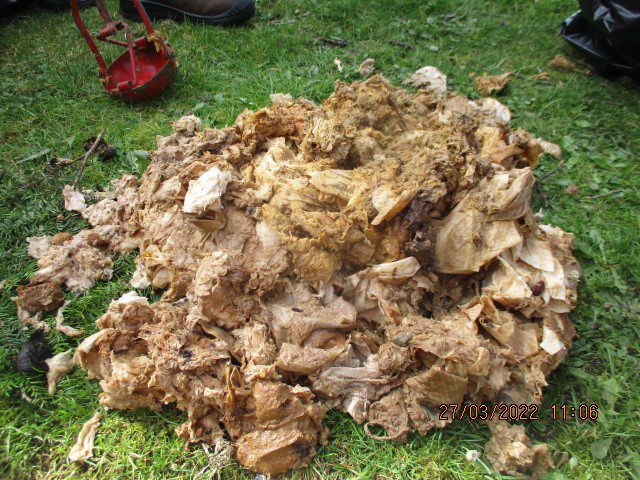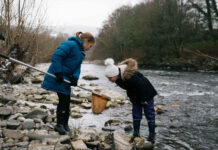
- · Sewer workers put out appeal to help people avoid costly blockages after Easter Sunday lunch
- · Fat, oil, and grease are a major cause of sewer blockages on the network
- · Blockages lead to human misery and flood hundreds of homes every year
- Tipping fat, oil and grease and other leftovers down the plughole this Easter could be a recipe for disaster, Welsh Water warns households, pubs, and restaurants.
Welsh Water, the first and still the only not-for-profit utility company in England and Wales is appealing to its customers to stop the block this Easter and avoid pouring such things down the kitchen sink.
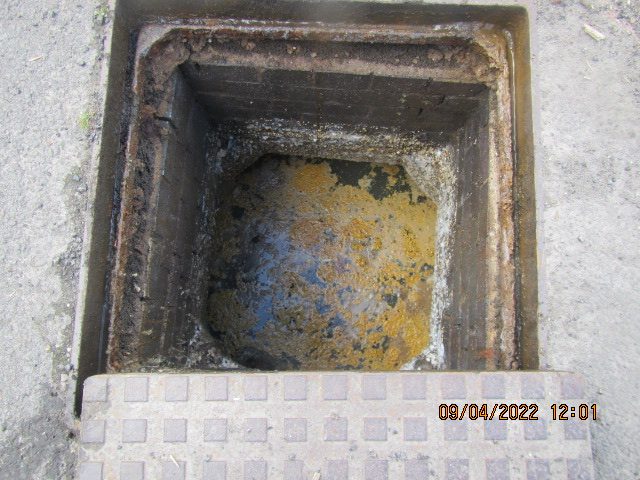
Easter is a time of year when Welsh Water’s sewers are at substantial risk of blockages. Fat, oil, and grease (FOG)1 may not appear to be harmful, but as it cools, it hardens and sticks to other things that shouldn’t be in there, including wet wipes, and causes blockages.
Once the sewer is blocked, waste that has been flushed down the toilet can flood homes or the local environment, causing disaster and distress.
Instead, people should allow cooking oil to cool, before scraping it into the bin. Customers are also reminded to wipe pans and other greasy items with kitchen roll before washing them, and to scrape leftovers into the food waste bin.
Recent research from polling company YouGov found that almost 10% of Welsh adults thought that the correct way to dispose of FOG is down the sink, while 20% of people didn’t think it should be disposed of in the sink, toilet or bin.
Between April 2021 and April 2022, there has been a total of 1120 FOG related incidents across its operating network.
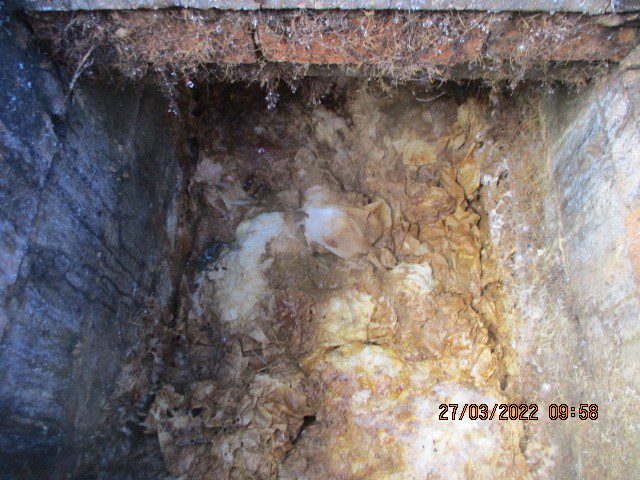
Welsh Water has identified areas across its operating area where repeat instances of blockage are high and will be working with customers over the next few months to understand how their actions can have a significant impact on not only their own environments around them but also those of their neighbours.
- Wrexham
- Mold
- Bridgend
- Hereford
- Newport
- Cwmbran
- Pontypool
- Milford Haven
- Haverfordwest
- Swansea
- Caerphilly
- Ely
Welsh Water’s Head of Wastewater Networks, Paul Kingdon, said: “Easter is a time where families come together to cook a traditional meal and enjoy relaxing with loved ones. When you pour leftover fats, oil and grease down the sink, there is a heightened risk of sewer blockages that can affect homes and cause distress – which is the last things families want during this holiday. Luckily, it’s really easy to protect your home from blockages, all you need to do is to dispose of all FOG correctly – in the bin.
“With the collective support of enough people, including those living in our repeat offender areas, Welsh Water will be able to reduce the blockages, floods and pollution that cause so much distress.”
Welsh Water also wants to ensure people are following its guidance on flushing wipes and other non-flushable items.
The YouGov research also revealed that 3% of people surveyed continue to flush wet wipes down the toilet, with 10% also flushing tampons or sanitary products.
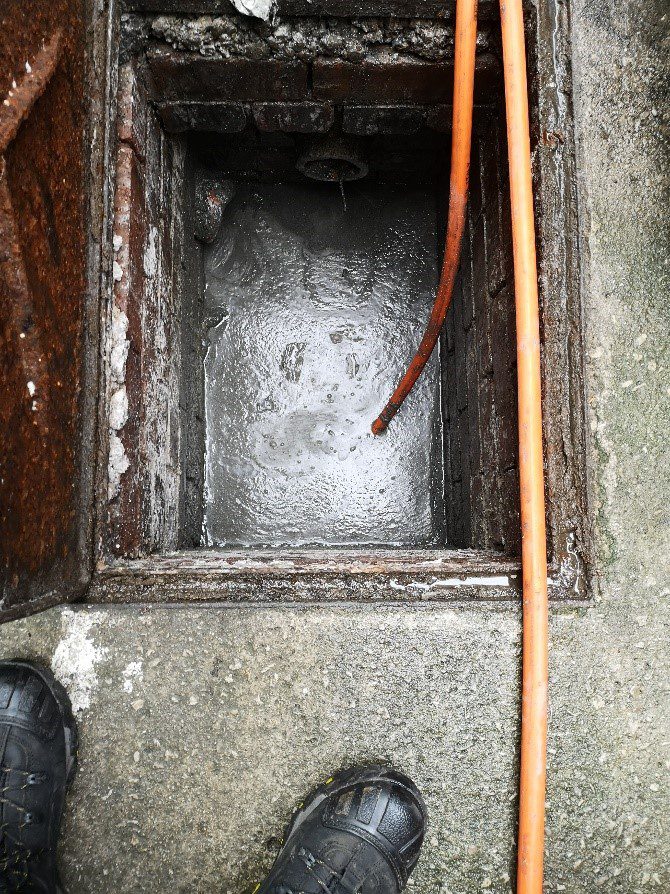
Rhyl FOG
Paul said: “Flushing the wrong things down the toilet can cause huge problems inside people’s homes, in our communities and our environment, so although these figures don’t appear to be staggering, just one wet wipe is enough to cause a blockage. We’re urging customers to only flush the three Ps down the toilet – pee, poo, and paper. By doing what’s right, you can help stop the block.”
Welsh Water runs its “Stop the Block” campaign to highlight the dangers of flushing materials that could block the pipes.
For information on how to avoid a flood in your home, visit dwrcymru.com/stoptheblock
Fat Facts:
- · Welsh Water, the only not-for-profit water company in England and Wales, estimates it tackles around 20,000 blockages a year, at around £5 million cost every year to the company – money which could otherwise be spent on its services or lowering customer bills.
- · Around two thirds of sewer blockages on Welsh Water’s network are caused by inappropriate substances like fat, oil, and grease (FOG), wet wipes and sanitary products being flushed down the loo.
- · The build-up of fat, oil and grease is indirectly responsible for many cases of sewer flooding and pollution of rivers and streams.
- · If we all take care not to tip our greasy leftovers into the sewerage system, the number of customers affected by flooding and the impact on our environment will be significantly reduced.
Flooding facts:
- · Drains from the home are normally no wider than four inches (100mm).
- · If there is a blockage or fault in your private drain, you will need to hire a drainage contractor to clear or repair it. Sewerage
- companies are only responsible for maintaining public sewers.
- · If sewage has flooded your property from a public sewer, the company should send someone to help clean up your home as quickly as possible.
- · You are entitled to a rebate off your annual sewerage bill to cover damages to the inside of your home caused by flooding from the public sewer.
- · Don’t forget to check whether your household insurance covers damage from sewer flooding.
Help keep news FREE for our readers
Supporting your local community newspaper/online news outlet is crucial now more than ever. If you believe in independent journalism, then consider making a valuable contribution by making a one-time or monthly donation. We operate in rural areas where providing unbiased news can be challenging. Read More About Supporting The West Wales Chronicle

















